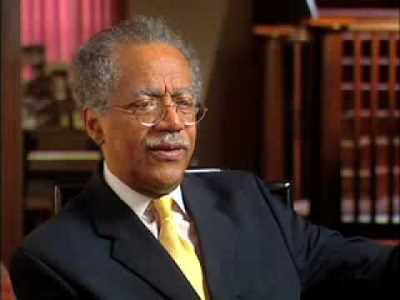 Rev. Samuel “Billy” Kyles
Rev. Samuel “Billy” KylesThe recent passing of the Rev. Samuel “Billy” Kyles brings into focus the steady loss of civil rights stalwarts who bravely fought against Jim Crow in a segregated nation not that long ago.
Kyles became a witness to history when he watched a bullet rip through the air and strike his friend, Dr. Martin Luther King Jr., on a Memphis motel balcony in April 1968.
King and the Revs. Ralph David Abernathy and Jesse L. Jackson were headed to Kyles’ home for dinner when the shots rang out on that fateful day and forever changed history.
“I’ve asked many, many times, ‘Why was I there at that crucial moment in time?’” Kyles has often recounted in scores of interviews across the decades. “Over the years, God has revealed to me why I was there. Crucifixions have to have witnesses.”
The soft-spoken preacher, who led Monumental Baptist Church in South Memphis for more than five decades, was lauded by both activists and scholars who studied the civil rights movement. He was a courageous foot solider, they said, who aggressively battled racial discrimination.
“Billy was the interpreter of our struggle, our witness,” said Jackson, the civil rights leader and two-time presidential candidate who considered Kyles a friend. “He fought to change the order of things. He was a founding father of the New Memphis and the New South.”
In an interview with Diverse, King’s biographer, Dr. Clayborne Carson, who holds the Martin Luther King Jr. Centennial Professorship of History and is founding director of the Martin Luther King, Jr. Research and Education Institute at Stanford University, said that he knew Kyles as a strong supporter of the National Civil Rights Museum in Memphis and as a superb teacher, who was committed to disseminating the legacy of King.
“I recall how impressive he was when he spoke to a group of California school teachers who participated in the King Institute’s education tour of civil rights landmarks in the South,” said Carson, who is the author of more than a dozen books about King and the movement. “He made it his mission to turn the terrible experiences of witnessing King’s assassination into an educational opportunity for the rest of us.”
Born in 1934 in the Mississippi Delta, Kyles moved with his family and millions of other Blacks to Chicago when he was 6, in what has become known as the second wave of the Great Migration.
With the nation facing violent racial unrest in the late 1950s, Kyles made a conscious decision to move back South where he took up the pastorate of a Memphis church and became active in social movements. Still in his early 20s, he was an early leader in the Memphis NAACP and later became a key participant in Jackson’s Operation PUSH organization.
Since King’s untimely death, Kyles was a favorite on the college lecture circuit, often turning down hefty honorariums. Friends who knew him said that he just wanted youth to understand the sacrifices that were made by ordinary people during that period. In addition, he was a strong advocate for historically Black colleges and universities in the South, and was a regular presence on the campus of LeMoyne-Owen College.
“He wasn’t interested in making money, he was interested in passing on knowledge,” said Jesse Epps, a labor leader who knew Kyles well and worked with him and King during the 1968 sanitation workers strike in Memphis. “He was one of the few people who was there when Dr. King was killed, and for years, he told the narrative of what happened that day. He always thought that it was his personal mission to tell the story.”
Kyles, who suffered from a series of health challenges in recent years, stepped out of the public spotlight in 2014. He is survived by his wife, Aurelia, and their grown children.
Jamal Eric Watson can be reached at [email protected]. You can follow him on Twitter @jamalericwatson.















